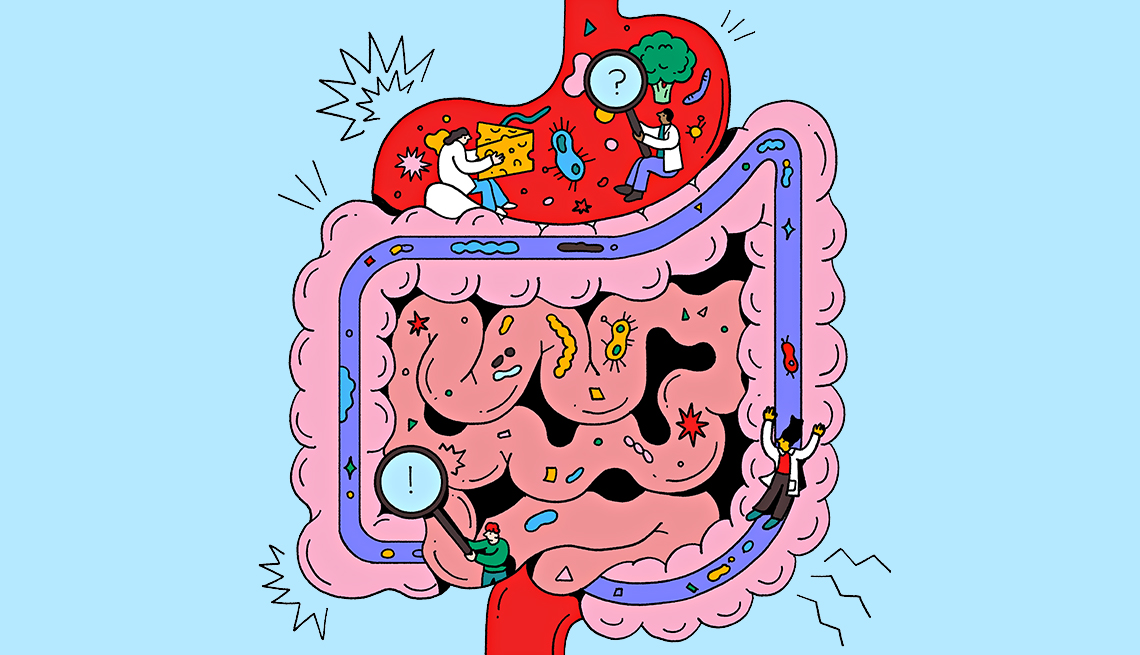
Why Do I Have IBS? (Plus, 4 Ways to Treat It)
- Select a language for the TTS:
- UK English Female
- UK English Male
- US English Female
- US English Male
- Australian Female
- Australian Male
- Language selected: (auto detect) - EN
Play all audios:

Marianne Sarcich, of Wilmington, Delaware, was in her mid-40s when she began to experience uncomfortable bloating and diarrhea. An avid runner, she had to dramatically scale back: “If I ran
more than a few miles, I’d get an intense case of the runs,” she says. A gastroenterologist diagnosed her with irritable bowel syndrome (IBS). Then, going through menopause a few years
later, Sarcich was surprised that her condition morphed and constipation took its place. Today, at 58, she says her symptoms flip back and forth. “It’s such a strange, puzzling condition,”
she muses. “Why me?” THE YUCK FACTOR IBS symptoms include recurrent abdominal pain, bloating and changes in bowel movements (diarrhea, constipation or both). It’s known as a disorder of
gut-brain interaction, which means it’s related to how your brain and gut work together. “IBS can cause brain hormone changes that cause your gut to be more sensitive, which can lead to
symptoms like abdominal pain and bloating,” as well as changes in bowel movements, explains William Chey, M.D., a gastroenterologist at the University of Michigan. “While IBS is most common
in your 30s and 40s, people over age 50 represent a substantial proportion of those with IBS,” says Anthony Lembo, M.D., vice chair of research for Cleveland Clinic’s Digestive Disease
Institute. And those symptoms often change with age. “As you get older, the nerve endings in your gut become less sensitive,” Lembo says. As a result, abdominal pain and discomfort are less
severe. However, chronic diarrhea and constipation remain common and may increase with age. If you have recurrent abdominal pain or a change in your bowel habits that lasts for more than a
couple of weeks, see your doctor right away. They may want to evaluate you for other conditions, such as lactose intolerance, celiac disease, infections and even some serious conditions such
as colon cancer or inflammatory bowel disease. Blood and stool tests and in some cases a colonoscopy may be recommended. IBS is likely the culprit if there is no other explanation.
